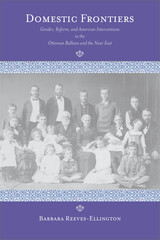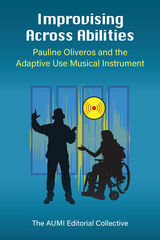5 start with D start with D

Standing at the crossroads of folklore, media, and performance studies, Arzu Öztürkmen explores the rise of the dizi genre in Turkey since the 1970s, when national television broadcasting began in the country. The Delight of Turkish Dizi approaches this unique genre—not quite soap opera or telenovela—as an art form that developed with the collective creative input of writers, producers, directors, actors, editors, musicians, and, lately, international distributors. Öztürkmen shows how dizi-making is a marathon run by sprinters, where production and broadcasting processes have been tightly interwoven, offering a mode of communication and consumption that is distinct to the Turkish television industry. The research consists of oral history with key figures in dizi production and ethnographic surveys of film sets, international content markets, and award ceremonies. This first-ever monograph on Turkish dizi will be a valuable addition to the field of performance and media studies while delighting the general reader as well.


J. Lesley Fitton traces this exciting tale of scholarly discovery and weaves it into an engaging, in-depth portrait of Greek Bronze Age civilizations, from their dawning on the Cycladic Isles in the third millennium B.C. to their later flowering in Minoan Crete and then in the Mycenaean centers and finally to their mysterious disappearance in the twelfth century B.C. The result is an elegant assimilation of vast historical detail and a well-illustrated tour of the art and artifacts, the grand palaces and tombs, the mythical heroes and Trojan treasures that form at least one cradle of our own civilization.
Fitton begins with the early finds of travelers, advances in geology, and research into Homer's identity. She vividly recreates the heroic age of the first archaeological excavations, particularly Heinrich Schliemann's fascinating work at Troy and Mycenae, and Arthur Evans's pioneering excavation and restoration of the Palace of Minos on Crete. The persistent search for signs of writing among Bronze Age Greeks culminates in Fitton's description of the 1952 deciphering of the earliest script used to write Greek. And as her account extends into the present, it encompasses the important contributions of the archaeologists Alan Wace and Carl Blegen, the War's impact on research, and a concise summation of current scholarly trends.

A reevaluation of the concept of the soul based on the latest evidence
Biblical scholars have long claimed that the Israelites “could not conceive of a disembodied nefesh [soul].” Steiner rejects that claim based on a broad spectrum of textual, linguistic, archaeological, and anthropological evidence spanning the millennia from prehistoric times to the present. The biblical evidence includes a prophecy of Ezekiel condemning women who pretend to trap the wandering souls of sleeping people. The extrabiblical evidence suggests that a belief in the existence of disembodied souls was part of the common religious heritage of the peoples of the ancient Near East.
Features
- A re-examination of the evidence for and against disembodied souls in the Hebrew Bible
- A new look at the nature and behavior of disembodied souls in the Hebrew Bible
- A new study of the meaning and sociolinguistic background of the Katumuwa inscription

Drawing on a broad range of sources—Ottoman, Bulgarian, Russian, French, and English—Barbara Reeves-Ellington tracks the transnational history of this little-known episode of American cultural expansion. She shows how issues of gender and race influenced the missionaries' efforts as well as the complex responses of Ottoman subjects to American intrusions into their everyday lives. Women missionaries—married and single—employed the language of Christian domesticity and female moral authority to challenge the male-dominated hierarchy of missionary society and to forge bonds of feminist internationalism. At the same time, Orthodox Christians adapted the missionaries' ideology to their own purposes in developing a new strain of nationalism that undermined Ottoman efforts to stem growing sectarianism within their empire. By the beginning of the twentieth century, as some missionaries began to promote international understanding rather than Protestantism, they also paved the way for future expansion of American political and commercial interests.
READERS
Browse our collection.
PUBLISHERS
See BiblioVault's publisher services.
STUDENT SERVICES
Files for college accessibility offices.
UChicago Accessibility Resources
home | accessibility | search | about | contact us
BiblioVault ® 2001 - 2024
The University of Chicago Press









